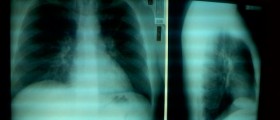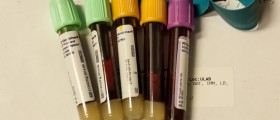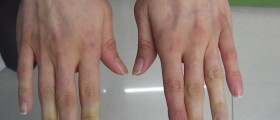
Sensitization
When a person with Rh negative blood is exposed to Rh positive blood, the Rhesus negative blood reacts strongly. Exposure can happen in a variety of ways, but the chance for exposure is highest during a blood transfusion, or pregnancy. Sensitization happens the first time an RH negative person has contact with Rh positive blood. Antibodies line up to prepare to attack the Rh positive blood. Once sensitization has occurred, an Rh negative mom carrying an Rh positive baby can cause Rhesus disease. The antibodies that attack Rhesus negative blood can cross the placenta and start causing Rhesus disease in the baby.
Prevention
Fortunately, it is not difficult to prevent sensitization from taking place. Anti-Rh antibodies injections are available. These can be used up to 72 hours after childbirth to prevent sensitization. Usually, anti-RhD IgG immunoglobulin injections are given at around 18 weeks gestation. If you are pregnant and Rh negative, this medication will be a routine part of your prenatal care.
Rhesus disease
The symptoms of Rhesus disease, and its consequences, depend on the severity. Mild anemia in a newborn or fetus results from mild Rhesus disease. In the worst cases, Rhesus disease can lead to fetal death. It is said that around five percent of all pregnancies where a mother had previously been sensitized would lead to stillbirths. Many babies who survived would be extremely ill. Thankfully, anti-RhD IgG immunoglobulin injections (Rhogam) are very effective, and Rhesus disease can be prevented with the right care. If you are a woman with a Rhesus negative blood type, and you are trying to conceive, it might give you some peace of mind to talk to an OB about Rhogam as soon as possible. Are you planning a hospital birth? Also look at what you should pack in your hospital bag for labor and birth.
- www.nhs.uk/conditions/rhesus-disease/
- www.nhs.uk/conditions/rhesus-disease/treatment/
- Photo courtesy of Panoramic Tiger by Wikimedia Commons: commons.wikimedia.org/wiki/File:Immunoglobulin_018.jpg

















Your thoughts on this
Loading...